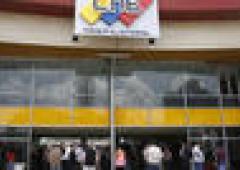On December 8, Venezuelan president Hugo Chávez announced that his cancer has returned. Unlike past announcements, this time around Chávez publicly acknowledged that his odds of survival may not be great. Chávez took the astonishing, and quite unprecedented, step of naming a successor, foreign secretary Nicolas Maduro.
